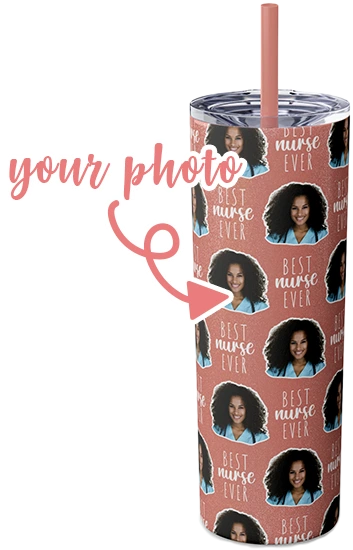
Are you interested in pursuing a career in healthcare or already immersed in the world of Certified Nursing Assistants (CNAs)?
If so, you’ve likely pondered the question, “Which CNA shift is the optimal choice?”
It’s a common inquiry that arises among CNAs due to the distinct advantages and challenges associated with each shift.
In this article, I’ll delve into three crucial tips to assist you in comprehending the nuances of various CNA shifts.
By considering your preferences and lifestyle, these tips will enable you to make an informed decision and identify the shift that suits you best.
Whether you’re an early riser, a night enthusiast, or somewhere in between, fear not!
I’m here to guide you on your journey of discovering the perfect CNA shift tailored to your needs.
So, continue reading and unravel the ideal fit for you!
The “better” shift to work as a Certified Nursing Assistant (CNA) can depend on various factors, including personal preferences and individual circumstances.
However, here are a few common CNA shifts and some considerations associated with each:
Daytime shifts typically align with the customary daylight hours, spanning from 7 a.m. to 3 p.m. or 8 a.m. to 4 p.m., facilitating seamless integration with the natural rhythm of the day.
One notable advantage of embracing day shifts is the enhanced potential for fostering meaningful connections with patients, families, and esteemed colleagues within the healthcare domain.
This opportune temporal window creates a fertile environment for collaboration, empathy, and the exchange of knowledge, amplifying the value of interpersonal interactions.
Furthermore, day shifts provide a well-regulated cadence that weaves a sense of structure into the fabric of one’s professional journey.
This balanced routine serves as a comforting sanctuary for individuals who appreciate the beauty of consistent sleep patterns and navigate a myriad of commitments that lay claim to the evening or night.
Subscribe now and get 15% OFF your personalized Tumbler featuring your name/photo.

Evening shifts typically start around 3 p.m. or 4 p.m. and end around 11 p.m. or midnight.
Working in the evenings may be attractive to individuals who prefer later hours or have daytime responsibilities.
It can also be advantageous if you prefer a quieter work environment since some activities wind down in the evenings.
However, you should keep in mind that patient needs may still require attention, and you’ll need to adapt to the specific dynamics of the evening shift.
Night shifts typically start late, around 11 p.m. or midnight, and end in the early morning, at 7 a.m. or 8 a.m.
People who prefer a quieter environment are often drawn to night shifts as there are fewer administrative tasks and visitors during nighttime.
Additionally, night shift differentials may result in higher pay rates.
However, working at night can pose challenges such as disrupted sleep patterns, feelings of isolation, and the need to adjust to non-traditional working hours.
Ultimately, the “better” shift for you depends on your personal preferences, lifestyle, and ability to adapt to different schedules.
It’s important to consider your own energy levels, sleep patterns, family commitments, and social needs when choosing a shift that suits you best.
Additionally, it can be helpful to consult with experienced CNAs or healthcare professionals to gain insight into the specific dynamics and demands of each shift at the facility where you plan to work.
In some healthcare facilities, there may be shift rotation policies and opportunities to switch between shifts.
These policies and opportunities can vary depending on the facility’s specific practices.
Shift rotation is often implemented to ensure fairness and distribute the workload evenly among CNAs.
Some facilities require CNAs to rotate between different shifts on a regular schedule, such as weekly or biweekly rotations.
Additionally, some facilities may allow CNAs to request a shift change or provide opportunities to switch shifts with colleagues.
These flexible options can be beneficial for CNAs with personal commitments or preferences for specific hours.
However, it’s important to note that any shift changes or switch opportunities are subject to approval processes, staffing needs, and individual considerations.
For detailed information about shift rotation policies and shift switching opportunities, it’s advisable to contact the human resources department or management of your healthcare facility.
Here are three important tips to help you decide what shift is perfect for you:
When choosing a shift as a Certified Nursing Assistant (CNA), it’s important to think about what works best for you.
Take into account your energy levels, family responsibilities, and personal commitments outside of work.
Assess which shift aligns with your natural rhythm and allows you to maintain a healthy work-life balance.
Different shifts in healthcare settings have their own unique demands and dynamics.
For instance, the morning shift often involves assisting with patient activities of daily living (ADLs), serving meals, and participating in therapy sessions.
Evening and night shifts may focus more on monitoring patients, providing medications, and responding to emergencies.
Consider your strengths, skills, and comfort level in handling different responsibilities during each shift.
Assess which shift aligns with your expertise and allows you to contribute effectively to patient care.
It can be helpful to reach out to experienced CNAs and supervisors who have worked across different shifts.
They can provide valuable insights into the pros and cons of each shift based on their own experiences.
Ask them about workload distribution, staff-patient ratios, teamwork dynamics, and any challenges or benefits specific to each shift.
Their input can guide you in making an informed decision and give you a better understanding of what to expect in each shift.
Remember, choosing a shift as a CNA is a personal decision that should consider your individual circumstances and goals.
Consider your preferences, assess shift demands, and seek guidance from experienced colleagues to enhance job satisfaction and support overall well-being.
Deciding which CNA shift is better depends on what you prefer, how you live, and your personal circumstances.
After considering the information in this article about day, evening, and night shifts, it’s clear that each shift has its own good points and things to think about.
Some people like day shifts because they have a set routine and more chances to interact with others. Others may enjoy night shifts because they are quieter and may pay more.
If you’re having trouble deciding, take some time to think about how much energy you have, your sleep patterns, and your other commitments.
Ultimately, you are the best judge of which CNA shift suits you. So, go ahead and choose what feels right for you!


We take on average 4 working days to ship.
Standard shipping: 7-21 days.
Fast Shipping: 3-8 days

